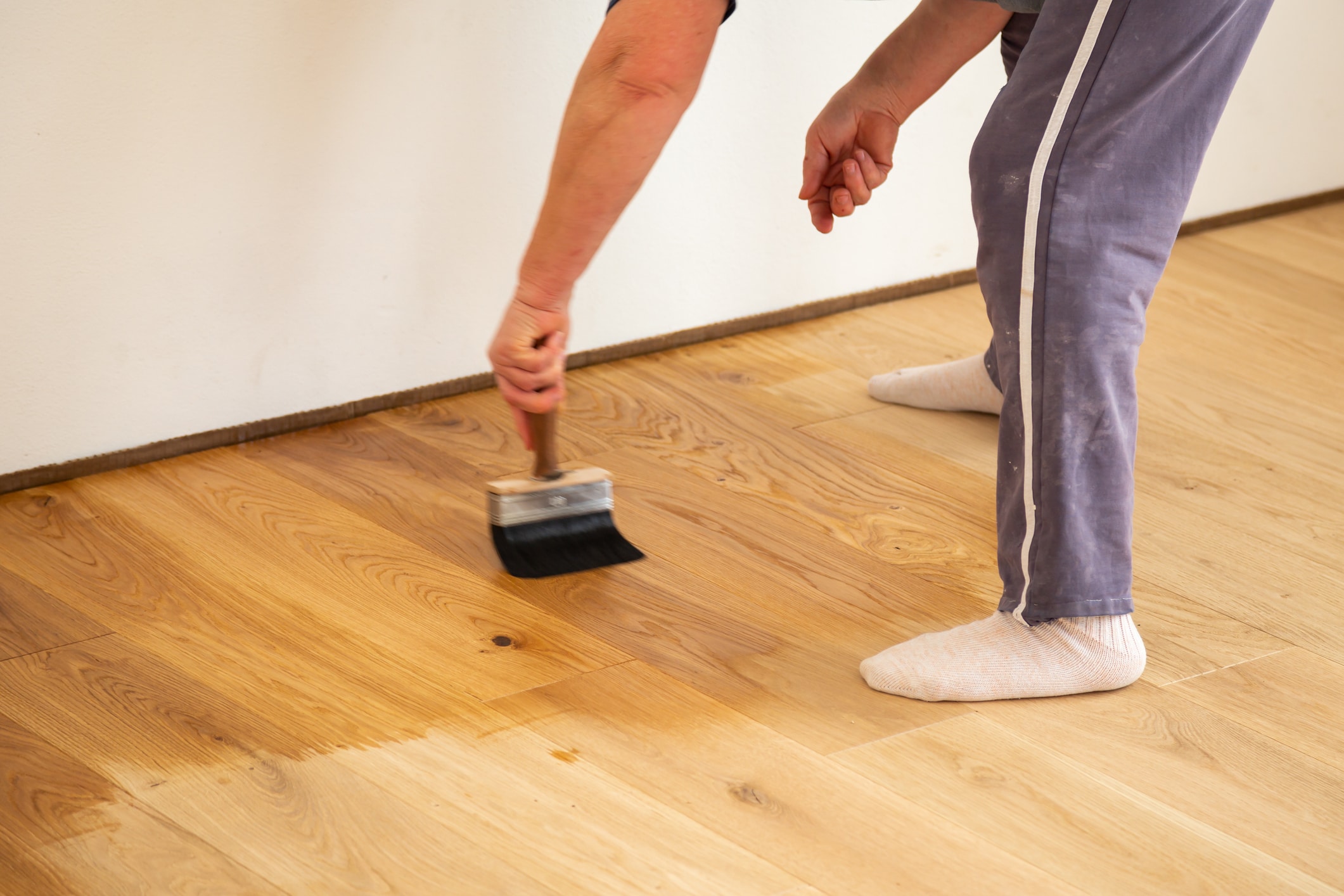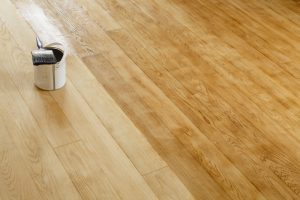Whether you are tackling your floor refinishing project as a DIY or having it done by the pros, one of the first decisions you are going to have to make is whether you want to use an oil-based or a water-based polyurethane. While the products offer similar benefits, they do have some differences. These differences include costs, hardness, and durability. Understanding those differences can help you make the right choice for your project.
Water-Based Polyurethane
We think of water-based polyurethane as being a little more user-friendly. It provides a clear finish, lets the natural beauty of the wood shine through, and dries quickly. In fact, with a drying time of around two hours, you can apply multiple coats in a single day. Even though more coats are needed, this generally results in a shorter project time. It is easier to clean up- you can clean up with water before it dries.
The biggest advantage of water-based polyurethanes is that they are much more environmentally friendly than oil-based polyurethanes. While their exact specifications vary from manufacturer to manufacturer, LOBA offers a good example of the positive environmental impact of water-based sealants. Their polyurethanes contain fewer solvents and are made from natural raw materials. They also have a lower VOC content, which improves indoor air quality as well as being more environmentally friendly.
However, there are some things about water-based polyurethane that are not so great. They are more expensive, which can make a difference if you are tackling a large project. While oil-based polyurethanes give an amber glow, water-based ones dry clear. This can leave wood with a sterile appearance. They have a smaller percentage of solids than oil-based products, which means they require more coats to get the same protective finish. They also need to be reapplied more often, however, the need for reapplication will depend on the foot traffic and what product line was used.
Oil-Based Polyurethane
Most of the pros we know choose oil-based polyurethanes. They are less expensive and require fewer coats than water-based products. They leave an amber glow, which helps really enhance the natural beauty in some woods. They also require less maintenance.
However, there are some things about oil-based polyurethanes that can make them more difficult to use. First, they do not clean up with water, which not only means additional cleaning products, but also potential damage to other finishes while you are cleaning them. They have a very slow drying time, which means that if you are redoing floors in a particular room, you could be stuck out of that room for days. They also have a strong odor that lingers for a long time.
Which One Is Right for You?
It really depends on the size of your project, who is tackling the project, and how long you can have your house out of commission. You will pay more for water-based, but the project can be done more quickly. Of course, you will have to redo it in a couple of years. Oil-based in less expensive and has to be done less frequently but is less convenient while you are doing it. Both are good choices, which really come down to personal preference.



